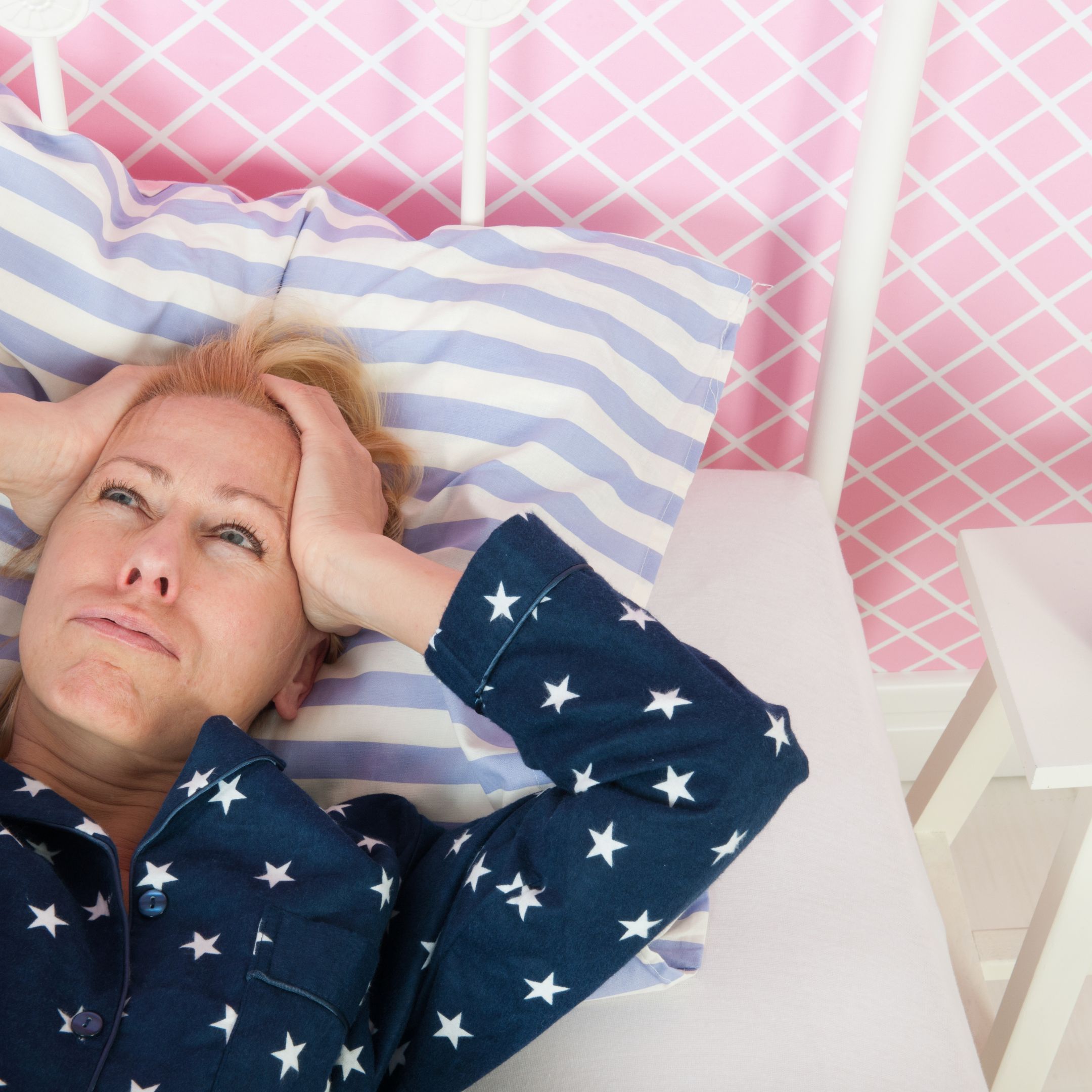Menopause Wellness: A Holistic Guide to Stress, Sleep, and Body Movement with Herbal Support
Posted by Cheryl Cryer on Oct 15th 2024
Menopause and perimenopause are transformative stages that bring with them various physical and emotional changes.
Many women experience symptoms such as hot flashes, mood swings, insomnia, and joint pain. While hormonal shifts are the root cause, lifestyle adjustments, along with natural remedies, can significantly alleviate discomfort.

In this blog, let’s focus on three crucial areas:
- Stress Management
- Sleep Quality
- Body Movement
Stress Management: Building Resilience

Managing Stress During Menopause
Menopause can intensify feelings of stress and anxiety due to hormonal fluctuations, particularly a decrease in estrogen. Chronic stress can also worsen menopausal symptoms such as hot flashes, mood swings, and fatigue.
Learning to manage stress effectively can reduce its impact on both emotional and physical health.
Stress-Reducing Strategies
Mindfulness & Meditation: Meditation, deep breathing, and mindfulness help calm the nervous system, reduce anxiety, and promote emotional resilience. You don’t need that long, try to dedicate 5-10 minutes each day to mindfulness or meditation. You can use guided meditation apps like Headspace, practice deep breathing exercises, or simply sit in quiet contemplation for a few minutes.
Yoga & Gentle Movement: Yoga combines movement, breathwork, and mindfulness, which reduce cortisol (the stress hormone), improve mood, and increase flexibility. Restorative or Hatha yoga styles are particularly beneficial for stress relief.
Journaling & Gratitude Practice: Journaling allows you to release and process emotions, while gratitude practice fosters a positive mindset and reduces stress. You can spend 5-10 minutes after morning meditation or in the evening. Write down your thoughts, any thoughts or what you’re grateful for. This can help “unload” mental tension and provide emotional clarity.
Nature Therapy: Spending time outdoors (sometimes called forest bathing), has been shown to reduce cortisol, improve mood, and boost overall well-being. Whether in a park, a nature preserve, by the beach, or in a garden, even 20 minutes outdoors can have a significant impact on reducing stress.
Herbal Support for Stress Relief
Ashwagandha: An adaptogenic herb that helps lower cortisol levels, reduce anxiety, and enhance emotional resilience.
St John's Wort: Known for its mood-lifting effects, it’s often used to alleviate mild to moderate depression and anxiety during menopause.
CBD (Cannabidiol): A non-psychoactive compound found in hemp, CBD interacts with the body’s endocannabinoid system to regulate mood and reduce anxiety. CBD helps calm the mind and body, promoting emotional balance.
Product recommendations
Sleep Quality: Improving Restorative Sleep

Sleep Challenges During Menopause Insomnia and sleep disturbances are common during menopause, often triggered by night sweats, anxiety, and hormone fluctuations. Improving sleep quality is essential for managing mood, stress, and overall well-being.
Sleep-Enhancing Strategies
Establish a Sleep Routine: A consistent sleep schedule helps regulate your body’s internal clock, making it easier to fall asleep and wake up feeling refreshed. Try to go to bed and wake up at the same time every day. Develop a calming pre-bedtime routine, such as dimming lights, reading, or listening to relaxing music. Keep your phone out of your bedroom or at least out of reach from bed.
Create a Sleep-Friendly Environment: Your sleep environment plays a major role in the quality of your rest. A cool, dark, and quiet room promotes better sleep. Lower the room temperature, use blackout curtains, and minimize noise with a white noise machine or earplugs.
Mindful Nutrition: Caffeine and certain foods can disrupt sleep. Choosing the right foods before bed can promote restful sleep. Limit caffeine after 2 PM and avoid heavy or spicy meals close to bedtime. Consider sleep-supportive snacks like almonds, bananas, or chamomile tea in the evening.
Gentle Evening Movement: Light physical activity like stretching or yoga can help relax your muscles and ease the transition to sleep. Incorporate a few gentle stretches (or try restorative yoga) before bed to help release tension and promote relaxation.
Herbal & Hemp Remedies for Better Sleep
CBD (Cannabidiol): CBD is highly effective for improving sleep quality. It helps reduce anxiety, promotes relaxation, and regulates sleep-wake cycles. CBD oils or edibles taken an hour before bed can help you fall asleep more easily.
Valerian Root: A traditional herbal remedy known for its calming effects, valerian root is often used to treat insomnia and sleep disturbances.
Chamomile: Chamomile tea is a classic remedy for promoting relaxation and sleep. Drinking a warm cup before bed can help ease anxiety and promote better sleep.
Sage: Known for its estrogen-like effects, sage can reduce night sweats and help women sleep more comfortably by minimizing nighttime hot flashes.
Product recommendations:
Body Movement: Stay Active for Symptom Relief

Why Physical Activity Matters During Menopause
Regular exercise during menopause can help manage weight, improve mood, reduce hot flashes, and support bone health. As estrogen levels drop, women are more susceptible to bone density loss, weight gain, and mood fluctuations, but exercise can counter these effects by boosting both physical and mental health.
Types of Exercise for Symptom Relief
Aerobic/Cardiovascular Exercise: Activities like brisk walking, cycling, or swimming help improve heart health, manage weight, and boost energy. Aim for moderate aerobic activity twice a week.
Strength Training: Building muscle helps counter the natural muscle loss that occurs with aging. Strength training also supports bone density, reducing the risk of osteoporosis.
Incorporate strength training exercises 2-3 times a week. Focus on body-weight exercises like squats, lunges, and push-ups or use light dumbbells and resistance bands.
Yoga: Both yoga and pilates improve flexibility, strength, and balance, while also providing a way to relax and reduce stress. Take a class or put on a video at home. Choose gentle styles like Hatha or restorative yoga for added stress relief.
Herbal & Hemp Remedies for Physical Recovery and Energy
Maca Root: This adaptogenic herb helps balance hormone levels, boost energy, and improve muscle recovery after workouts. It’s commonly consumed as a powder in smoothies or capsules.
CBD Topicals: Applying CBD-infused creams or balms to sore muscles and joints can provide localized pain relief and reduce inflammation after exercise.
Hemp Seeds & Hemp Oil: Rich in omega-3 and omega-6 fatty acids, hemp seeds and oil support joint health and reduce inflammation, which is especially beneficial for women experiencing joint pain or stiffness during menopause. Also great is flax seeds (ground) and fish oil like Carlson Norwegian.
Product recommendations:
Managing menopause holistically means addressing both the physical and emotional aspects of the transition. By focusing on stress management, sleep quality, and body movement—and supporting each category with the appropriate herbal and hemp remedies—you can alleviate many of the common challenges associated with menopause.
For stress: Use practices like meditation, yoga, and nature therapy to reduce anxiety, supported by herbs like Ashwagandha and CBD.
For sleep: Improve your nightly routine and create a calm sleep environment, using natural aids like Valerian root, CBD, and chamomile.
For body movement: Stay active with cardiovascular, strength training, and flexibility exercises while incorporating Maca root, hemp seeds, and CBD for muscle recovery and energy.
By integrating these strategies and remedies, you can create a personalized wellness plan that will help you navigate menopause with balance, resilience, and improved well-being.
NOTE: Always consult with a healthcare provider before starting any herbal supplements, especially if you're on medication or have health concerns.

